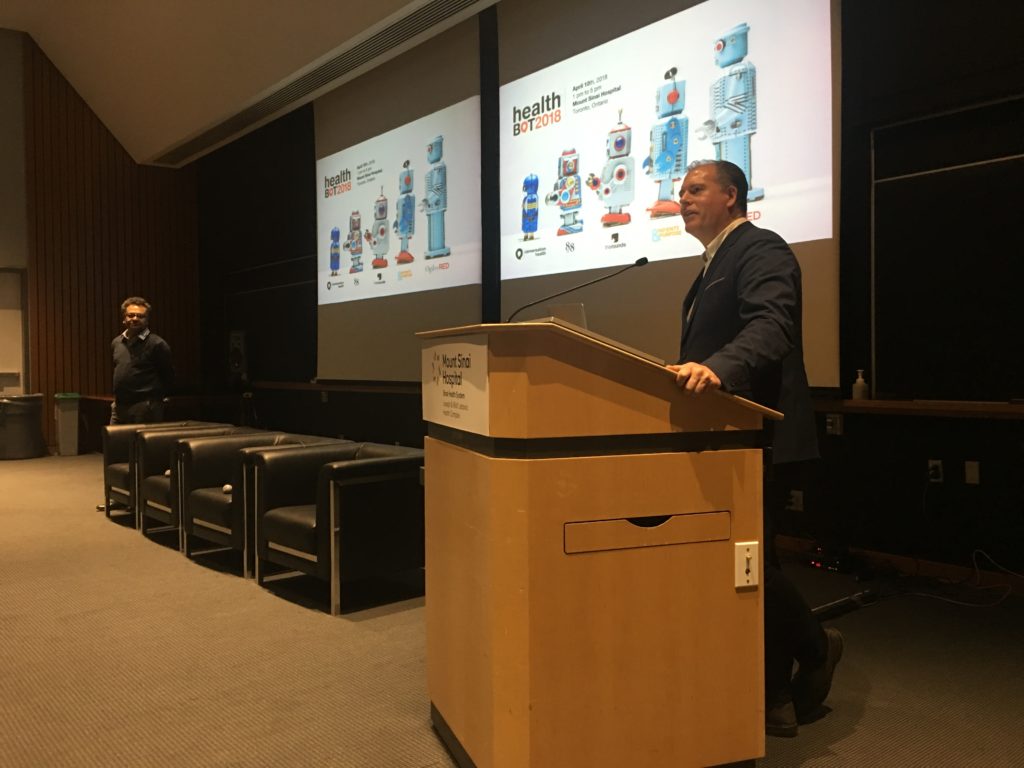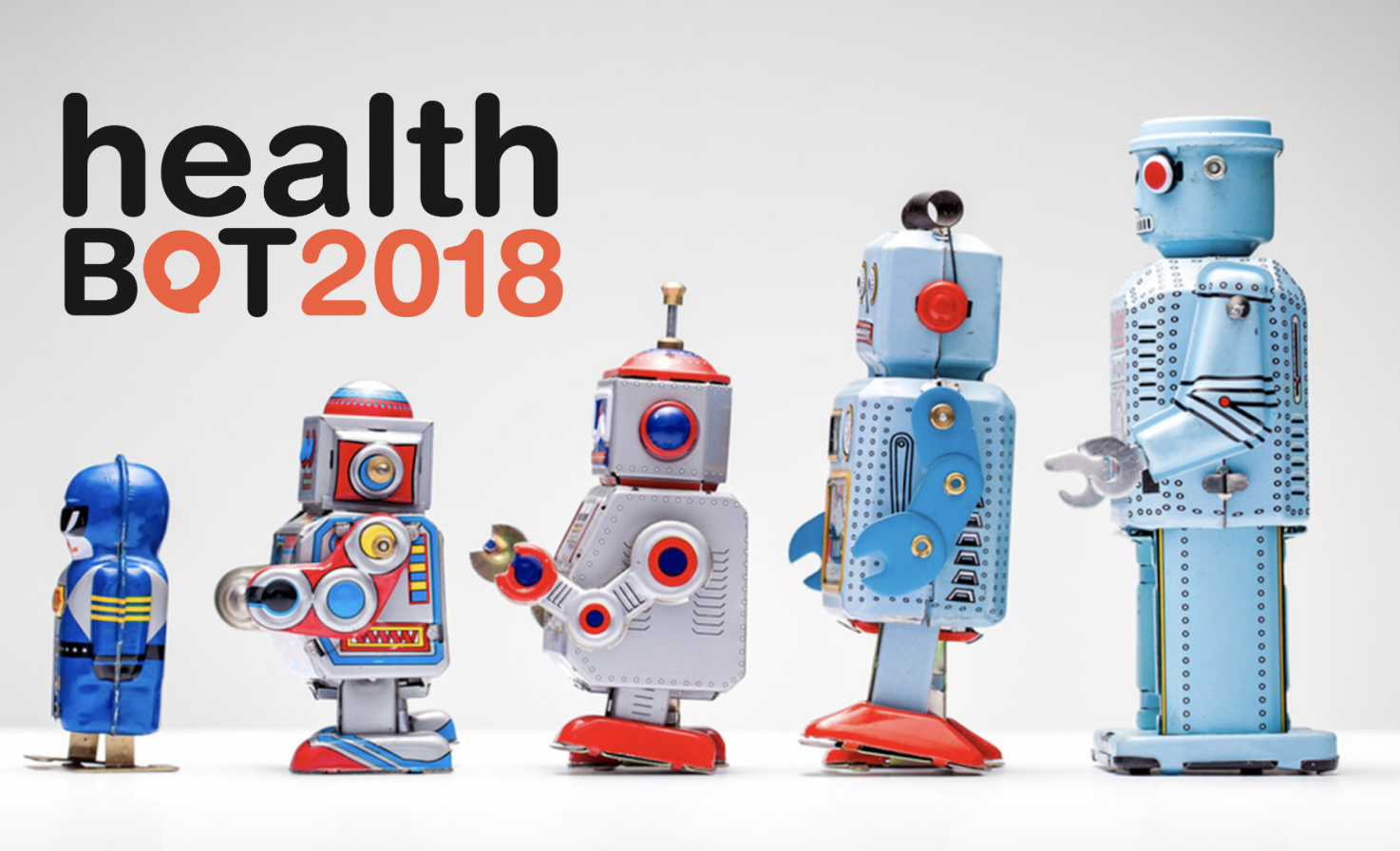The first annual HealthBot1 conference—hosted by conversationHEALTH during Toronto Health Innovation Week2—shined a spotlight on the hot, upcoming field of chatbots in healthcare. After all, any way to save human hours—that of physicians, sales reps, or call centers—is an attractive value proposition. As Shwen Gwee of Novartis put it, call centers in healthcare pretty much already sound like bots—those answering questions have pre-approved scripts of information they can tell you, but aren’t allowed to stray away from what’s approved content.
Another reason chatbots are gaining traction is that our framework for decision-making in healthcare is already categorized into decision trees. Chatbots are based on a set of smart questions and an algorithm that logically navigates to the correct response based on those answers. Decision trees in healthcare (treatment plans, for example) can get extremely complex—chatbots have the ability to eliminate superfluous noise and guide users to the answer they need in that specific scenario.

Finally, marketers are getting smarter about building content for where their customers are. We all know that humans now have an attention span shorter than a goldfish.3 While some might complain that this makes it harder for brands to get their customers’ attention, we also know that people are spending more time online, especially on mobile, than ever before. Smart marketers are taking advantage of platforms where their customers are already engaging. Facebook Messenger, for example, has 1.3B monthly active users across the globe.4 With their developer-friendly APIs for building branded smart chatbots, an increasing number of brands are building content to support (not sell to) their users on this platform that already has an incredible user base. However, with consumer mistrust of Facebook on the rise, will we see engagement on Facebook Messenger decrease?
The Growing Power of Voice
One chatbot channel that isn’t at risk with any potential decline of Facebook use is what many view as next frontier of digital consumer engagement—voice. Already, 1 in 6 Americans owns a smart speaker.5 Half of searches are expected to be by voice by the year 2020 (that’s just two years away).6 The same decision trees that are effective written in text on a screen have the potential to be just as—or even more—effective in a voice-first format.
We intuitively know that speaking our question saves time versus typing it out. However, early feedback from many voice-only chatbots is that answers can be extremely long-winded, which can easily frustrate our users who already have short attention spans. A combination of voice and screen, like Amazon’s Echo Show, or even an iPhone with Siri, may be the most appropriate combination in some scenarios.7
Finally, let’s not forget that not all of our customers will want to engage with a bot in all situations—or at all. Older customers who are less excited about technology or who prefer doing business “the old way” might prefer an in-person sales rep. Younger individuals who are digitally native might be encouraged to use a bot as a first line of questioning about anorexia or other conditions that have a social stigma attached (asking questions via chatbot may be less intimidating than scheduling an appointment with a counselor or therapist). But, that doesn’t mean we should forget about the need to provide support for those who wish to also engage with a real person when the time is right. Bots should be one option among many for individuals to engage with a topic or a brand—we’re not all moving to a bot-only lifestyle anytime soon.
References:
- https://www.eventbrite.com/e/healthbot-2018-tickets-44161350789#.
- https://www.healthinnovationweek.ca.
- http://time.com/3858309/attention-spans-goldfish.
- https://www.statista.com/statistics/258749/most-popular-global-mobile-messenger-apps.
- https://techcrunch.com/2018/01/12/39-million-americans-now-own-a-smart-speaker-report-claims.
- https://www.forbes.com/sites/forbesagencycouncil/2017/11/27/optimizing-for-voice-search-is-more-important-than-ever/#4db010cb4a7b.
- https://hbr.org/2018/03/what-will-health-care-look-like-once-smart-speakers-are-everywhere.










